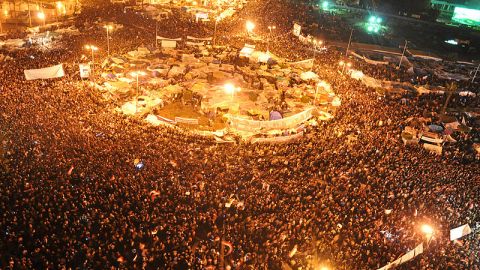Social Media’s Changing Role in Egypt

What’s the Latest Development?
Since ex-president Hosni Mubarak resigned, Egypt’s military has controlled its political institutions. Yesterday, as a new executive cabinet was sworn in, protesters returned to Tahrir Square demanding more reform and a guarantee that a presidential election will take place as scheduled. While social media platforms like Facebook and Twitter catalyzed the popular uprising earlier in the year, today they function more as discussion forums, says Ahmed Maher, a social media activist and founder of the April 6 Youth movement. More traditional methods have been used to publicize the current protests.
What’s the Big Idea?
Posters and hand fliers: these are the new, traditional ways Egyptians are being informed of the current protest in Tahrir Square. In a sense, social mobilization has returned to normal. While social media catalyzed the spring protests, the latest round has not been used to mobilize the population. Is this because of skepticism over Western media companies “marketing” the Egyptian revolution or does it speak to a new social and political reality in Egypt: That social media are now entrenched forums for the discussion of political issues?





